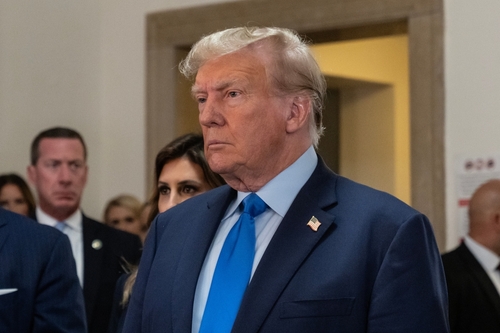FBI Director Kash Patel’s stance shifts on the $10.2 billion budget proposal under Senate scrutiny.
At a Glance
- Patel shifts stance on the FBI’s $10.2 billion budget proposal, initially opposed.
- Concerns expressed over staffing challenges due to budget $545 million less than requested.
- Senators question FBI’s fiscal management, pressing Patel for more detailed proposals.
- Administration defends cuts to reallocate resources for national security priorities.
Patel’s Initial Oppostion and Acceptance
FBI Director Kash Patel initially resisted the Trump administration’s $10.2 billion budget proposal, viewing it as inadequate for operational needs. This proposed amount falls $545 million short of what Patel deemed necessary for the bureau. During a session with the Senate Appropriations Committee, Patel modified his approach, agreeing to work within the constraints while aiming for a larger budget closer to $11.2 billion. His stance highlighted potential staffing challenges, which could undermine the FBI’s functioning.
Patel’s comments to the Senate differed from his earlier statements to the House Appropriations Committee, where he fervently contested the $545 million budget cut. Senators from varying political affiliations scrutinized the FBI’s fiscal management, with legislators like Sen. Jerry Moran expressing unease over potential staffing implications. Additionally, Sen. Patty Murray pressed Patel for not presenting a thorough budget request, shedding light on the need for transparency in fiscal planning.
Administrative Adjustments and National Security
The administration endorsed the proposed budget cuts, explaining them as necessary reallocations to address national security threats more effectively. Emphasis was placed on shifting focus towards counterintelligence and counterterrorism, while scaling down non-law enforcement missions. This reallocation is seen as essential to maintain the nation’s security integrity while also addressing concerns surrounding the perceived weaponization of the FBI.
Despite initial apprehensions, Patel addressed the Senate with a readiness to navigate these financial limitations, albeit with continuous advocacy for a larger budget. He pledged to submit a more comprehensive budget proposal soon to accommodate the concerns raised by the committee and ensure that the FBI could maintain its operational capacity without compromising national security objectives.
Senate Scrutiny and Future Proposals
As Senators scrutinize the FBI’s financial strategies, Patel’s forthcoming proposals will lay the groundwork for clearer fiscal planning. The administration’s budgetary adjustments challenge the FBI to adapt and reassess its focus areas. Patel acknowledged the legislative concerns while emphasizing the need for resource optimization, promising incisive focus on pressing security threats.
As discussions continue, the balance between fiscal constraints and operational efficacy remains paramount. The ongoing dialogue between the Senate and Patel will shape the FBI’s strategic planning, featuring adaptability to cope with budgetary constraints while addressing evolving security challenges.






